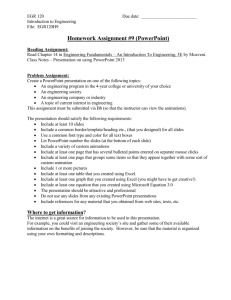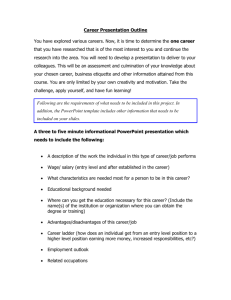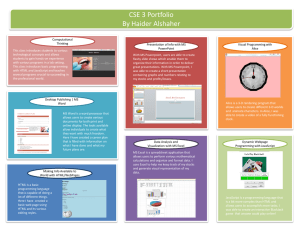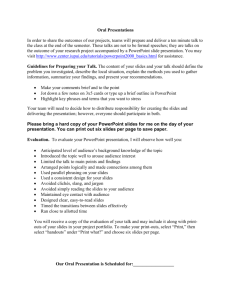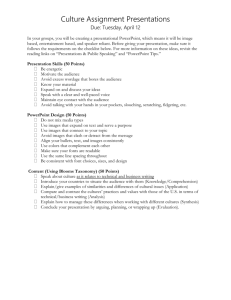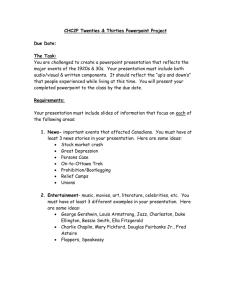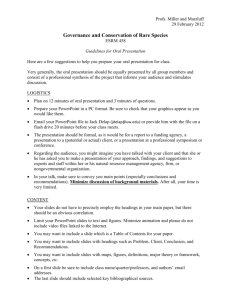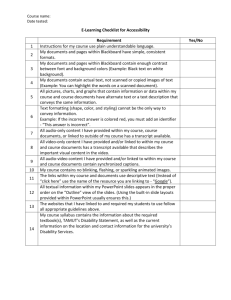WCOB 2043 Acquiring and Ma - Sam M. Walton College of Business
advertisement
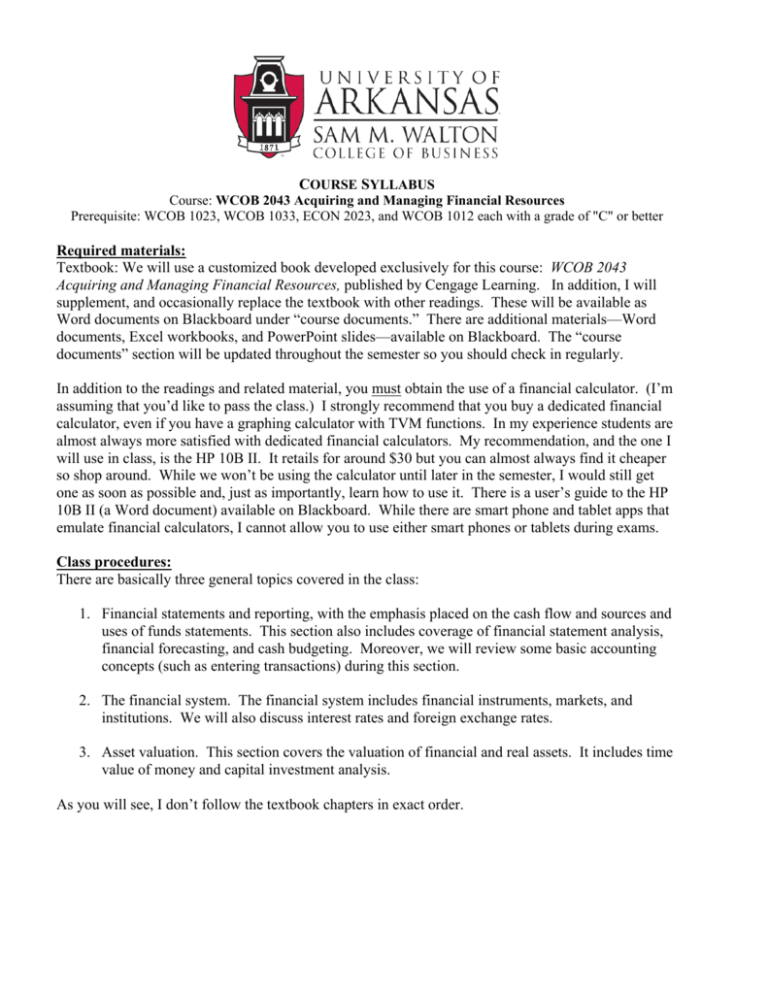
COURSE SYLLABUS Course: WCOB 2043 Acquiring and Managing Financial Resources Prerequisite: WCOB 1023, WCOB 1033, ECON 2023, and WCOB 1012 each with a grade of "C" or better Required materials: Textbook: We will use a customized book developed exclusively for this course: WCOB 2043 Acquiring and Managing Financial Resources, published by Cengage Learning. In addition, I will supplement, and occasionally replace the textbook with other readings. These will be available as Word documents on Blackboard under “course documents.” There are additional materials—Word documents, Excel workbooks, and PowerPoint slides—available on Blackboard. The “course documents” section will be updated throughout the semester so you should check in regularly. In addition to the readings and related material, you must obtain the use of a financial calculator. (I’m assuming that you’d like to pass the class.) I strongly recommend that you buy a dedicated financial calculator, even if you have a graphing calculator with TVM functions. In my experience students are almost always more satisfied with dedicated financial calculators. My recommendation, and the one I will use in class, is the HP 10B II. It retails for around $30 but you can almost always find it cheaper so shop around. While we won’t be using the calculator until later in the semester, I would still get one as soon as possible and, just as importantly, learn how to use it. There is a user’s guide to the HP 10B II (a Word document) available on Blackboard. While there are smart phone and tablet apps that emulate financial calculators, I cannot allow you to use either smart phones or tablets during exams. Class procedures: There are basically three general topics covered in the class: 1. Financial statements and reporting, with the emphasis placed on the cash flow and sources and uses of funds statements. This section also includes coverage of financial statement analysis, financial forecasting, and cash budgeting. Moreover, we will review some basic accounting concepts (such as entering transactions) during this section. 2. The financial system. The financial system includes financial instruments, markets, and institutions. We will also discuss interest rates and foreign exchange rates. 3. Asset valuation. This section covers the valuation of financial and real assets. It includes time value of money and capital investment analysis. As you will see, I don’t follow the textbook chapters in exact order. Exams: There will be three non-comprehensive examinations during the semester. The tentative dates for which are 20 September, 30 October, and 6 December. More details will be provided later during the semester and these dates are subject to change. I will announce specific exam dates, as well as the material for which students will be responsible, at least one week prior to the exam. The final exam is comprehensive and is mostly common to all sections of the course. The final exam will be on Thursday, 13 December at 1800. This date is set by central administration and cannot be changed. Exceptions for students who have a university excused absence or a specific conflict with another officially scheduled final exam may be made. Exceptions will not be made for any nonuniversity related absence. Tutor: There is a free tutor who is available to help you in this course. The tutoring schedule should be announced within the first two weeks of the semester. Consult the “current students” section of the Walton College Web site (http://waltoncollege.uark.edu) for details. Please do not wait until it is too late to seek help. Grades: Grades are based on the total number of points earned during the semester. A total of 400 points is possible (100 points per exam). In addition, I may assign homework problems and/or give pop quizzes during class. Any points earned on homework or quizzes are bonus and are added to your final point total. Late homework will not be accepted nor will makeup quizzes be offered. You will need at least 360 points to earn an A; 320 points to earn a B; and, so forth. I do not negotiate over course grades. If you miss a higher grade by a just a “couple” of points, you’ll have my sympathy, but that’s it. Please, no emails at the end of the class asking me to adjust the cutoff points. They will change nothing. One of my few pet peeves—other than students talking in class, showing up late, or leaving early—is students who whine about grades. Academic dishonesty: As a core part of its mission, the University of Arkansas provides students with the opportunity to further their educational goals through programs of study and research in an environment that promotes freedom of inquiry and academic responsibility. Accomplishing this mission is only possible when intellectual honesty and individual integrity prevail. Each University of Arkansas student is required to be familiar with and abide by the University’s Academic Integrity Policy which is available in the Catalog. Student with questions about how these policies apply to a particular course or assignment should immediately notify their instructor. Inclement weather policy: While inclement weather is much less likely during the fall semester, it is still a possibility. Even if the university is open, class may still be cancelled due to inclement weather. Since I live in Rogers, the best guide is the status of Rogers Public Schools—if RPS cancels school, this class will be cancelled regardless of the status of the University. Cancellation notices are posted on Blackboard so you should always check before heading out. I suggest that students use simple common sense when it comes to winter travel decisions. 2 Guidelines for testing accommodations for students with disabilities: This class will follow the university’s policy that reasonable accommodations will be made for students with disabilities. Students must request any accommodations from their instructor in addition to requesting accommodations from the Center for Educational Access (CEA). Please contact the CEA for details on accommodations for disabilities. Professionalism: Class begins promptly and you’re expected to be in the room and ready to go. (Where I went to school, it was common practice for professors to lock the door once class began.) Also, I expect that you will not get up and leave early. Please do not bring any food into the classroom, as this tends to be distracting to your fellow students. Drinks are okay, but please police yourself. As a matter of professional courtesy, I would like you to keep your mobile phones, set on silent mode or completely off, in your bags or backpacks during class. (You don’t want to know what will happen if your phone rings during class.) You may use a laptop computer, iPad or similar device during class assuming you’re using it strictly for class work (not checking out Facebook, reading email, etc.). I reserve the right to request that you put any electronic device away at any time. Other than calculators, no electronic devices may be used during exams. Tentative Schedule: (subject to change) Topic Approximate Number of Class Periods Text Chapter(s) Other Material (available on Blackboard) 1. Review of basic accounting principles and financial reporting 1 1, 2 PowerPoint: Financial statements 2. Balance sheet and income statement 2 3, 4 PowerPoint: Balance sheet PowerPoint: Income statement Excel: Nike and Costco financial statements 3. Preparing cash flow statements and sources and uses of funds statements 3 5 PowerPoint: Statement of cash flows Excel: Nike and Costco financial statements Excel: DuPont and MCI cases 4. Financial statement analysis 2 6 Word: Financial analysis chapter PowerPoint: Financial analysis Excel: Nike and Costco financial statements 3 5. Financial forecasting and cash budgets 2 7 Word: Financial forecasting chapter PowerPoint: Financial forecasting Excel: Financial forecasting and models 6. Introduction to the financial system and financial instruments 2 none Word: Financial instruments chapter PowerPoint: Financial instruments 7. Financial markets 2 8 Word: Financial markets chapter PowerPoint: Financial markets 8. Financial institutions 2 8 Word: Financial institutions chapter PowerPoint: Financial institutions Excel: Data on financial institutions 9. Interest rates and foreign exchange rates 2 9 Word: Interest rates and exchange rates chapter PowerPoint: Interest rates and exchange rates Excel: Interest rate data 10. Time value of money 4 10 Word: Time value of money chapter Excel: Time value of money 11. Valuation of financial assets (bond and stock valuation) 1 none Word: Bond valuation chapter Word: Stock valuation chapter PowerPoint: Bond and stock valuation 12. Valuation and analysis of capital investments. 4 11, 12 Word: Capital investment analysis chapter PowerPoint: Capital investment analysis Excel: Capital investment analysis tables and figures The first exam will likely cover topics 1-5; the second, topics 6-9; and, the third, topics 10-12. Remember, these are subject to change, as are the tentative exam dates (all except the final). 4
